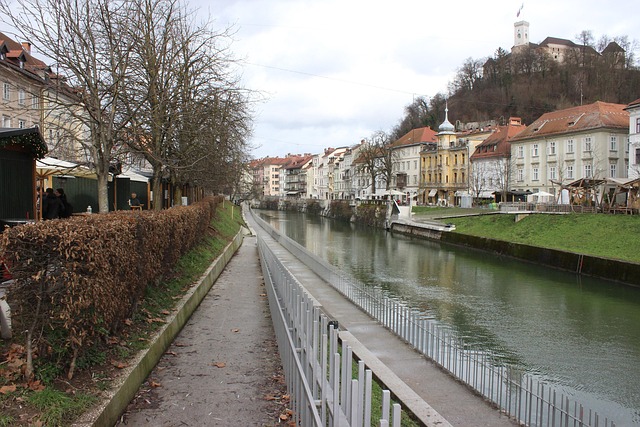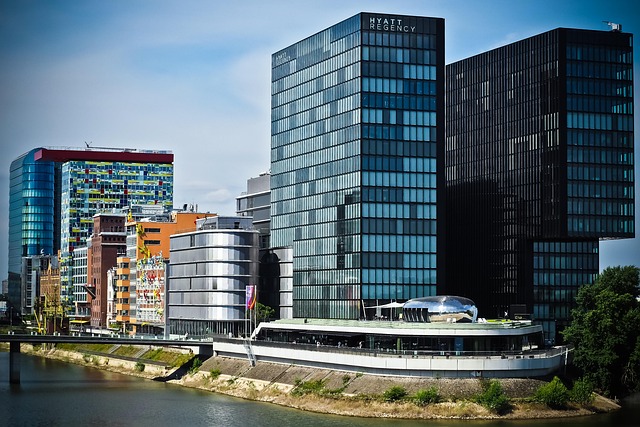Karachi, Pakistan's financial hub, has seen its fast food culture flourish due to the city's dynamic culinary environment and residents' preference for convenience. This trend, however, raises health concerns with rising rates of obesity and chronic diseases. To address this, local authorities must regulate fast-food chains, promote nutritious choices, and encourage sustainable practices. By collaborating with healthcare and community groups, Karachi can drive positive change, creating a responsible food ecosystem that preserves the city's diverse culinary heritage while catering to its bustling metropolis.
In the vibrant city of Karachi, fast food has emerged as a significant cultural phenomenon in DHA Defence, shaping both its culinary landscape and economic fabric. This article delves into the rise of quick-service restaurants in this area, exploring their impact from a socio-economic standpoint. We examine health concerns related to frequent consumption of fast food and how these issues affect local communities. Additionally, we discuss regulatory measures and sustainable solutions to promote a healthier food environment in Karachi.
- The Rise of Fast Food in DHA Defence, Karachi: A Cultural and Economic Perspective
- Health Concerns and the Impact on Local Communities
- Regulatory Measures and Sustainable Solutions for a Balanced Food Environment
The Rise of Fast Food in DHA Defence, Karachi: A Cultural and Economic Perspective

The fast food culture in DHA Defence, Karachi, has witnessed a remarkable rise and transformation over the years, reflecting the city’s dynamic culinary landscape. This vibrant neighborhood, known for its modern architecture and cosmopolitan atmosphere, has become a hub for various international and local fast-food chains, catering to a diverse range of tastes and preferences. The emergence of these establishments is deeply intertwined with Karachi’s cultural and economic fabric.
Karachi, as Pakistan’s financial center, boasts a bustling metropolis where convenience and speed are highly valued. Fast food has seamlessly blended into the daily routines of its residents, offering quick meals that cater to fast-paced lifestyles. The city’s multicultural environment also plays a significant role in shaping culinary trends, with various cuisines from around the globe finding their place in DHA Defence’s culinary tapestry. This fusion of cultures has undoubtedly contributed to the popularity and diversity of fast food options, making it an integral part of Karachi’s modern dining scene.
Health Concerns and the Impact on Local Communities

In Karachi, the rise of fast food culture has been accompanied by growing health concerns. The abundance of high-calorie, high-fat, and high-sugar foods contributes to various dietary issues, including obesity, heart disease, and diabetes. These health problems not only impact individuals but also place a significant burden on local healthcare systems.
The impact extends further, affecting the broader community. Karachi’s diverse neighborhoods are seeing an increase in health disparities, with certain areas suffering from higher rates of chronic diseases due to limited access to nutritious food options. This phenomenon underscores the need for balanced dietary choices and initiatives aimed at promoting healthier lifestyles among the city’s residents.
Regulatory Measures and Sustainable Solutions for a Balanced Food Environment

In Karachi, the rise of fast food has led to a need for regulatory measures that promote a balanced food environment. The city’s vibrant culinary landscape, characterized by bustling streets and a diverse range of cuisines, must also consider health and sustainability. Local authorities play a crucial role in implementing guidelines that ensure food safety and quality while encouraging the adoption of sustainable practices among fast-food chains. These measures could include regular inspections, strict adherence to hygiene standards, and the promotion of nutritious options on menus. By balancing convenience with health, Karachi can foster a food culture that caters to its diverse population without compromising well-being.
Additionally, fostering collaboration between businesses, healthcare professionals, and community organizations is essential. Educational campaigns can raise awareness about healthy eating habits, while initiatives focusing on locally sourced ingredients can reduce the environmental impact of fast food. In terms of sustainable solutions, encouraging the use of eco-friendly packaging, promoting recycling programs, and adopting efficient waste management systems within fast-food establishments are steps in the right direction. These efforts not only contribute to a cleaner, greener Karachi but also create a more responsible and responsive food ecosystem that meets the needs of its citizens while preserving the city’s unique culinary identity.
The proliferation of fast food in DHA Defence, Karachi reflects complex cultural and economic dynamics. While it offers convenience, the health concerns associated with its consumption are significant, particularly within dense urban communities like Karachi. Implementing regulatory measures that promote balanced food environments is crucial to mitigating these risks. By fostering sustainable solutions, we can ensure that residents of DHA Defence and other Karachi neighborhoods enjoy accessible, healthy dining options that contribute to overall well-being.

Leave a Reply